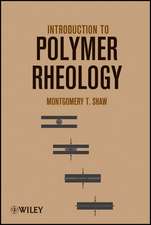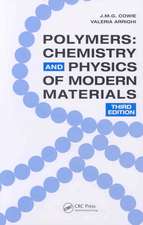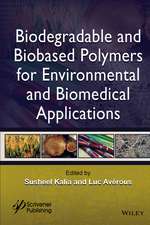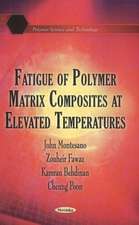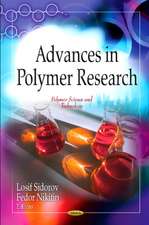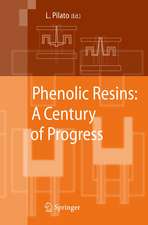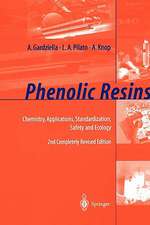Materials Characterization: Modern Methods and Applications
Editat de Naryanaswami (Mohan) Ranganathanen Limba Engleză Hardback – 9 noi 2015
Preț: 902.74 lei
Preț vechi: 1100.89 lei
-18% Nou
Puncte Express: 1354
Preț estimativ în valută:
172.73€ • 180.35$ • 142.96£
172.73€ • 180.35$ • 142.96£
Carte tipărită la comandă
Livrare economică 04-18 aprilie
Preluare comenzi: 021 569.72.76
Specificații
ISBN-13: 9789814613064
ISBN-10: 9814613061
Pagini: 334
Ilustrații: page 132,163,189,209,210,211,216,217,218,245,266; 15 Illustrations, color; 161 Illustrations, black and white
Dimensiuni: 152 x 229 x 25 mm
Greutate: 0.78 kg
Ediția:1
Editura: Jenny Stanford Publishing
Colecția Jenny Stanford Publishing
ISBN-10: 9814613061
Pagini: 334
Ilustrații: page 132,163,189,209,210,211,216,217,218,245,266; 15 Illustrations, color; 161 Illustrations, black and white
Dimensiuni: 152 x 229 x 25 mm
Greutate: 0.78 kg
Ediția:1
Editura: Jenny Stanford Publishing
Colecția Jenny Stanford Publishing
Public țintă
Academic and PostgraduateCuprins
Preface. Advanced nanomechanical test techniques. Surface Properties of Polymers and Rubber Measured by Nanoindentation. Characterization Of Light-Cured Dental Composites. Properties of a Lead Free Solder. Determination of Plastic Zones at the Crack Tip. Multiple Aspects Of Polychloroprene Fatigue Behavior. Fatigue Crack Growth Rate Measurement – A Review. Measurement of Wear and Friction Resistance of Bulk and Coated materials. Elastic Properties Characterization by Means of Dynamic Resonant Technique. Advanced nanomechanical test techniques. Surface Properties of Polymers and Rubber Measured by Nanoindentation. Characterization Of Light-Cured Dental Composites. Properties of a Lead Free Solder. Determination of Plastic Zones at the Crack Tip. Multiple Aspects Of Polychloroprene Fatigue Behavior. Fatigue Crack Growth Rate Measurement – A Review. Measurement of Wear and Friction Resistance of Bulk and Coated materials. Elastic Properties Characterization by Means of Dynamic Resonant Technique.
Recenzii
"This timely book gives an impressive overview of the mechanical characterization of materials in terms of theories and applications. It provides good examples that illustrate the methods to determine the local and global mechanical properties of a wide range of materials. It is a good reference book for academic researchers in various engineering disciplines and professional engineers to gain a comprehensive understanding of materials characterization and select appropriate methods to assess the mechanical responses of advanced materials."
— Dr. Jinju Chen, Newcastle University, UK
— Dr. Jinju Chen, Newcastle University, UK
Notă biografică
Narayanaswami Ranganathan is head of the Laboratory of Mechanics and Rheology at the University of Tours, France, and overseas professor at Anna University and SRM University, Chennai, India. He was a visiting professor at École Polytechnique, Montréal, Canada, in 1993. His research interests comprise materials fatigue, nanocharacterization of material behavior, and fracture mechanics, and he has more than 100 research publications in these fields. Prof. Ranganathan has given talks in related fields all over Europe and the United States, and also at several prestigious universities, including Cambridge University, Columbia University, Washington University in St. Louis, the University of Waterloo, IIT Madras, and IIT Delhi.
Descriere
This book gives a comprehensive state-of-the-art treatment to nanoindentation techniques and applications (four chapters cover metals, polymers, and rubber—novel applications such as creep and impact tests results at micro/nano level are considered). In fact Chapter 1 is a thorough analysis of this technique, its possibilities, and future developments. There are two chapters regarding corrosion and abrasion resistance of metals and dental composites and three chapters treating fatigue—one on rubber that highlights a hitherto unknown mechanism in a chloroprene rubber. There is one chapter on a very precise technique for modulus measurements up to 1200 °C.

